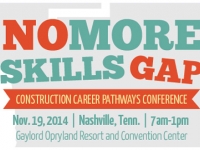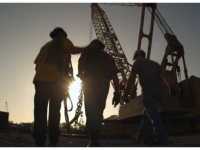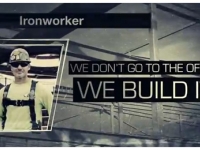After more than thirty years in the construction industry, it’s time for me to step aside to make room for the next generation, and I must say I’m encouraged by what I see.As I look back at my career in the industry, I’ve witnessed a lot of change. In the 1980s, when I worked for one of the top engineering and construction firms in the nation, we didn’t have recruitment issues. We had projects valued at more than $500 million with thousands of employees, and when we needed more pipefitters, welders or other craft professionals, we mailed notices to all those in our database who had ever worked for us. We could expect that within days our employment offices would be full and our project workforce needs met. During that time, employees went from contractor to contractor depending on where the work was. The pay and benefits were good and the pool of employees seemed endless.
As we reflect on Veterans Day this week, most of us think about the countless blessings we have because of the sacrifice and service of our country’s brave men and women. There is no doubt that this holiday gives deserving recognition to those who have so gallantly served. However, we can do more than simply recognize our veterans. We must remember the words of John F. Kennedy, “As we express our gratitude, we must never forget that the highest appreciation is not to utter words, but to live by them.”Earlier this year, the construction industry committed to hire 100,000 veterans over the next five years. In order to accomplish this, Build Your Future (BYF) partnered with the U.S. Department of Defense to use an effective recruitment tool known as SkillBridge, an online, Twitter-based portal specifically for transitioning service members.During the last 180 days of service, military personnel undergo a transition phase. Transitioning into civilian life is a daunting challenge for many service members, and two out three veterans report having a difficult time during this process. In addition, veterans listed the greatest challenge during the phase was finding a civilian job.
November 12, 2014
There is currently not enough information available about career opportunities in the construction industry. This means that educating everybody about our industry is critical, especially our education system. It is more important than ever for contractors to connect with educators at the local level. Members of industry can do this by providing opportunities for presentations and field trips and by joining advisory boards to offer input about the knowledge and skills the industry expects from new entrants.In February 2011, Harvard’s Graduate School of Education published a landmark report, Pathways to Prosperity (download available below), which outlined the need for multiple career pathways to be incorporated into America’s education system.
October 31, 2014
Those of us in the construction industry are aware of the vast opportunities that exist for individuals who are willing to build. October is Careers in Construction Month, and it’s the perfect time to spread the word about these opportunities. According to new research from CareerBuilder and Economic Modeling Specialists International, 73 percent of high school seniors reported that they already know which career they want to pursue. Research like this tells us that we need to start early when promoting careers in construction as we seek to recruit the next generation of craft professionals.Informational resources are paramount to recruitment, and NCCER’s Build Your Future (BYF) initiative offers numerous resources to support the recruitment efforts of our industry’s next skilled workforce.
September 18, 2014
Recent reports and studies have found that public education’s focus on 4-year college degrees has led to diminished emphasis on Career and Technical Education (CTE). But with the growing disparity between the skills that industry employers are looking for and the skills which available workers have to offer, that focus is under strong reconsideration.As part of our ongoing efforts to emphasize the importance of CTE as the key to narrowing the skills gap and raise awareness of the well-paying career opportunities in construction, Build Your Future (BYF) and NCCER are joining the Association for Career and Technical Education (ACTE) in celebrating national Career and Technical Education Month all throughout February.
February 07, 2014
For some, the holidays are all about food, football, family reunions and reflecting on the gifts for which we are most thankful. As I prepare to celebrate in the days to come, I recognize that I have much to be grateful for – family, friends, and a career I am passionate about. I am also grateful for the service of the brave men and women of our military, who defend the freedoms I hold dear.A little known fact is that many of America’s veterans are facing significant challenges transitioning into civilian employment once they return home. The members of our armed forces and their families make great sacrifices in the service of our nation, and when their service is concluded, we have an obligation to be their connection to rewarding civilian careers.
December 17, 2013


Last Friday marked a momentous occasion for our country, as a group of craft professionals bolted the spire for the new World Trade Center into place 1,776 feet above the ground in New York City. This incredibly emotional moment meant a great deal to many Americans, and provided an opportunity to remember those who were lost in the tragic events of September 11, 2001.Matt Lauer and Savannah Guthrie from the NBC Today Show share the moment in this short video:
May 16, 2013


Construction careers have received their fair share of bad press over the years. As a result, it is not uncommon for today’s student to come away from the classroom or the counselor’s office thinking that the only way to earn a good living is by getting a bachelor’s degree. Parents want their children to have it better than they do, and conventional wisdom is that a college degree is the one and only path to a successful and financially stable career.However, even in today’s highly competitive job market, the reality may surprise you. The Harvard Graduate School of Education’s landmark report, Pathways to Prosperity, found that “27% of people with post-secondary licenses or certificates – credentials short of an associate’s degree – earn more than the average bachelor’s degree recipient.”
March 07, 2013


Recovery is all around us. The construction industry is revving up again, driven by a hefty backlog of work and a fresh dose of infrastructure revitalization. And just as many had predicted, we are now facing an extraordinary lack of skilled craft professionals who are ready to build, repair and maintain. The cycle of recruitment for any industry hinges on informing young students about the possibilities for a particular career and the steps they need to take in order to accomplish their goals. Yet the construction industry is hindered by preconceived ideas and misconceptions about the education, training, and advancement opportunities associated with a successful career.Some of these misconceptions start early on, perpetuated by well-meaning parents, teachers and guidance counselors: “Oh, you can take a carpentry class in high school, but you can't make a living as a carpenter.”
February 12, 2013


The idea that a four-year degree is the only path to success in America is an outdated notion. Numerous recent studies have found that our educational system as it currently exists is not producing enough graduates with the skills that employers are looking for, particularly in the construction and manufacturing industries. For example, the Construction Labor Research Council predicts that 185,000 new workers will be needed annually for the next decade. The need for a skilled construction industry workforce is compounded by the lack of a strong pool of young craft professionals to replace the older generation as they retire.As part of our ongoing efforts to underscore the importance of Career and Technical Education (CTE) as the key to narrowing this skills gap and raising awareness of the well-paying career opportunities in construction, the Build Your Future (BYF) initiative has developed a wide range of resources to help young people and displaced workers find careers in our industry.
October 11, 2012












